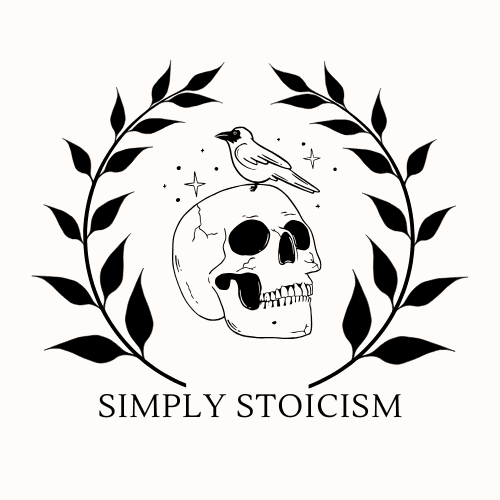Getting Started Series Week 2: Your Feelings Are Not Facts (Gasp)
A guide to applying Stoic wisdom to emotional intelligence, showing how ancient philosophers' techniques for distinguishing feelings from facts can help build mental resilience and better manage emotional reactions in modern life.

Jon High
·
Nov 12, 2024
🔄 The Quick Rewind
Last week, we dove into the Stoic superpower of focusing on what you can control. If you missed it, the TL;DR is: you probably spend way too much time freaking out about things you can't change. (Don't we all?) Today, we're tackling something even spicier: why your feelings are straight-up lying to you sometimes, and why that's actually great news.
💡 The Big Stoic Truth Bomb of the Week
Picture this: You text your friend about lunch plans. An hour goes by. Two hours. The little "read" receipt is staring at you like a judgmental cat. Your brain, being the drama queen it is, starts spinning stories faster than a Netflix writers' room:
"They hate me."
"I must have said something wrong last week."
"Nobody respects my time."
"I'm basically undateable/unfriendable/unworthy of basic human decency."
(Just me? Cool, cool, cool.)
Here's the Stoic plot twist that's about to blow your mind: The event (friend not showing up) didn't cause your emotional tailspin. Your interpretation did.
As our boy Epictetus dropped this truth bomb 2,000 years ago:
"People are not disturbed by things, but by their judgments about things."
This isn't just some ancient wisdom that sounds cool on Instagram. It's literally the foundation of modern cognitive behavioral therapy. The Stoics figured out two millennia ago what therapists now charge $200/hour to explain: There's a gap between what happens and how we react to it. And in that gap lies our freedom.
Think of it like this: Events are just raw footage. Your mind is the Netflix editor that adds the dramatic soundtrack and decides if it's going to be a tragedy or a comedy. The good news? You're the director of this show.
🎯 How to Actually Use This (Because Philosophy Without Action is Just Fancy Complaining)
1. The "Is That True?" Test
When your emotions are going from 0 to 100 real quick:
Catch the thought ("Everyone hates me")
Ask yourself: "Is that true? Can I absolutely know that's true?"
Then: "What's the evidence for and against this thought?"
Finally: "What would I tell a friend who had this thought?"
2. The Three-Column Reality Check
Grab a journal (or your Notes app, no judgment) and create three columns:
Column 1: What actually happened (just the facts, like a boring police report)
Column 2: The story your brain is telling about it (go wild, include all the drama)
Column 3: Alternative interpretations that could also be true
Example:
Fact: Friend didn't respond for 3 hours
Your Story: They hate me and are plotting to exile me from the friend group
Alternative: They're in a meeting, their phone died, they're having a crisis about their own life choices, they're taking a nap
3. The 10-10-10 Rule
When something's got you in an emotional pickle, ask yourself:
Will this matter in 10 minutes?
Will this matter in 10 months?
Will this matter in 10 years?
Spoiler alert: Most things that feel like the end of the world barely register on the 10-10-10 scale.
📖 Story Time: The OG Emperor of Emotional Intelligence
Let me tell you about Marcus Aurelius, the Roman Emperor who was basically journaling about emotional intelligence before it was cool. Every morning, he'd write about how annoying people were going to be that day: "Today you will meet braggarts, ingrates, and the selfish."
But here's the kicker – he wasn't being a grumpy emperor. He was doing something genius: reminding himself that other people's behavior was just... behavior. Not a personal attack. Not a cosmic injustice. Just humans being human.
When his most trusted general betrayed him (think top employee stealing your clients and starting a competing business), instead of losing his mind, he wrote: "Does this surprise you? Did you expect betrayal to vanish from the world just because you trusted someone?"
That's like finding out your ex is dating your best friend and responding with "Well, humans gonna human." Talk about emotional intelligence goals.
🔑 The Real-World Impact
This isn't just philosophical navel-gazing. Once you start separating facts from interpretations, you'll notice:
Your anxiety drops (because most of what you worry about is interpretation, not fact)
Your relationships improve (because you stop reacting to stories in your head)
Your decision-making gets better (because you're dealing with reality, not fiction)
Your stress levels decrease (because you're not fighting imaginary dragons)
🤔 The Big Takeaway
Your feelings are real, but they're not always reality. The power isn't in changing what happens to you – it's in mastering the story you tell about what happens.
Think of your mind like a smartphone camera: It's always adding filters. Your job isn't to stop the filtering – it's to become aware of which filters you're using and choose better ones.
Your Weekend Challenge
For the next 24 hours, try this: Before every negative thought, add the phrase "I'm telling myself a story that..."
Example:
Instead of "This project is impossible"
Say "I'm telling myself a story that this project is impossible"
Watch how this tiny language shift changes your whole perspective.
Questions to Ponder
What stories are you telling yourself that make your life harder than it needs to be?
How would your day be different if you stuck to just the facts?
What's your most common misinterpretation of neutral events?
Coming Up Next Week
Why thinking about death is actually the secret to living better (trust me on this one – it's not as dark as it sounds).
Remember: You're not responsible for your first thought, but you are responsible for your second thought and your first action. Choose wisely, fellow Stoic-in-training.



